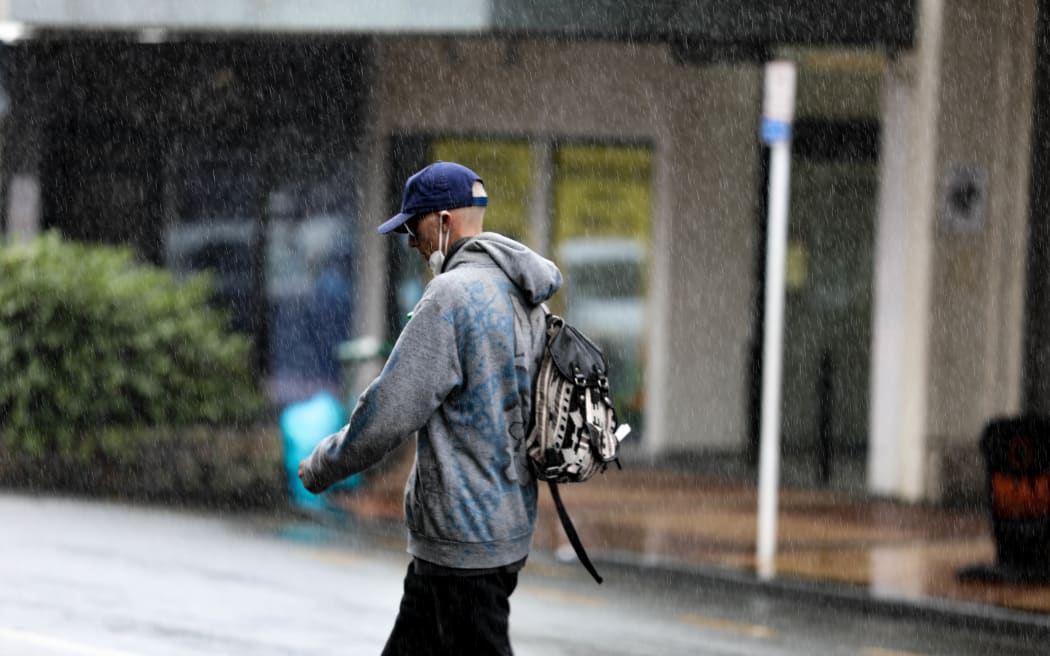Lifestyle
Advocates Demand Urgent Action to Address Māori Youth Homelessness

Youth homelessness in Auckland has seen a staggering increase, with reports indicating a 90 percent rise since September 2023. Advocates are now urging local authorities to take immediate action to support the vulnerable young population lacking stable accommodation. Approximately half of the homeless individuals in the region are under the age of 25, highlighting an urgent need for targeted solutions.
The issue is multifaceted. Changes to emergency housing criteria introduced last year have exacerbated the situation for young people seeking shelter. According to Māhera Maihi, CEO of the Mā te Huruhuru Charitable Trust, the criteria have made it more challenging for youth to qualify for assistance. Maihi oversees two youth housing facilities that adopt a specific kaupapa Māori approach, focusing on culturally appropriate solutions for Māori youth.
“The young people are expressing a clear desire for more kaupapa Māori supported accommodation,” Maihi stated during an interview with RNZ’s Saturday Morning. “Many homes are unsafe and unstable due to factors such as family violence, breakdowns, and overcrowding.” She further noted that queer and gender-diverse youth face additional challenges, often feeling marginalized within an already strained system.
The systemic barriers include lack of access to basic requirements like bank accounts and identification, as well as financial constraints that prevent young people from affording bonds and upfront housing costs. Maihi explained that the “care-to-homelessness pipeline” significantly impacts youth, stressing the importance of addressing these challenges comprehensively.
Innovative Solutions and Community Engagement
Maihi’s organization provides 12-month placements at He Pā Piringa, which accommodates young individuals aged 17 to 21 facing homelessness. The facility emphasizes a whanau-centered approach, creating a safe environment that respects the cultural heritage of its residents. “This approach acknowledges that it takes a community—our kaumatua, kuia, pakeke, and taitamariki—to support these young people,” she remarked.
The trust employs innovative practices, such as utilizing wananga (educational gatherings) and connecting youth with their cultural roots at local marae. “Through these experiences, young people often express a sense of belonging that is incredibly powerful,” Maihi explained. Remarkably, the facility has reported zero instances of property damage and no police callouts for violence, outcomes that are rare not only in New Zealand but globally.
According to Maihi, the existing systems fail to reflect the unique vulnerabilities faced by Māori youth. Many do not qualify for social housing under current rating criteria, which overlooks their specific needs. “Our organization has managed to place 19 young people into permanent homes, a significant achievement considering the barriers they face,” she added.
Call for Systemic Change
Maihi advocates for a “vulnerability multiplier” within the housing rating system to better account for the complexities of youth homelessness. The current system rates young individuals based on a scale that does not adequately represent their high needs, often limiting access to essential housing resources.
As the scale of Māori youth homelessness remains largely undocumented, advocates are calling for a dedicated youth homelessness strategy. The absence of official data complicates efforts to gauge the true extent of the problem and formulate effective interventions.
In summary, the rising crisis of Māori youth homelessness in Auckland demands urgent attention. Advocates like Māhera Maihi are not only highlighting the struggles faced by these young individuals but are also championing culturally resonant solutions that empower them to find stability and belonging. As the community rallies for change, the need for more inclusive and responsive housing policies has never been clearer.
-

 World7 days ago
World7 days agoPrivate Funeral Held for Dean Field and His Three Children
-

 Top Stories2 weeks ago
Top Stories2 weeks agoFuneral Planned for Field Siblings After Tragic House Fire
-

 Sports3 months ago
Sports3 months agoNetball New Zealand Stands Down Dame Noeline Taurua for Series
-

 Entertainment3 months ago
Entertainment3 months agoTributes Pour In for Lachlan Rofe, Reality Star, Dead at 47
-

 Entertainment2 months ago
Entertainment2 months agoNew ‘Maverick’ Chaser Joins Beat the Chasers Season Finale
-

 Sports3 months ago
Sports3 months agoSilver Ferns Legend Laura Langman Criticizes Team’s Attitude
-

 Sports4 weeks ago
Sports4 weeks agoEli Katoa Rushed to Hospital After Sideline Incident During Match
-

 Politics2 months ago
Politics2 months agoNetball NZ Calls for Respect Amid Dame Taurua’s Standoff
-

 World2 weeks ago
World2 weeks agoInvestigation Underway in Tragic Sanson House Fire Involving Family
-

 Entertainment3 months ago
Entertainment3 months agoKhloe Kardashian Embraces Innovative Stem Cell Therapy in Mexico
-

 Top Stories2 weeks ago
Top Stories2 weeks agoShock and Grief Follow Tragic Family Deaths in New Zealand
-

 Sports4 weeks ago
Sports4 weeks agoJamie Melham Triumphs Over Husband Ben in Melbourne Cup Victory





















